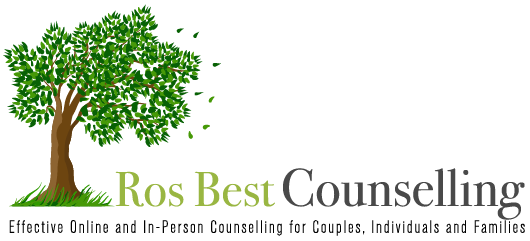1. “Our problem is about communication. We don’t communicate well”.
Dr. John Gottman’s research debunked this theory. His research showed that you might be referring to a mismatch in your conflict style (loud arguers; pleasers who avoid conflict; negotiators). Dr. Sue Johnson would reorient your noticing: When people are afraid that their partner might not choose to be there for them/ see them, they frame what they are saying in complaints, “always, never”… The one thing they don’t say is what they are feeling about the underlying perception that their partner is not there for them. In other words, it isn’t exactly a communication issue, so much as a speaking to the superficial concern rather than the longing. Worse yet, so many of us don’t permit ourselves to notice our deeper needs, we stuff them down. So how on earth are we supposed to be vulnerable and show them to our partner when we haven’t even seen them for ourselves? When that was not modelled for us growing up (quite the opposite, too often).
Communication issues are tricky, because all of our experience, wiring, expectations, and fears piggy-back on our words. This is why, if this is not your couple’s forte, seeing a qualified couples therapist can finally permit you and your partner to have the relationship you always longed for. Ros Best Counselling specializes in this type of couples counselling.
2. “There’s no point in going to couples counselling if my partner is the one at fault. [They should go ‘fix’ themselves/ There is no point, they will refuse to listen.]”
Dr. Sue Johnson refers to this “conversation” (out loud or in a partner’s head) as “finding the bad guy”. She points the couple instead to thinking of your relationship as a “dance”; both people have to be dancing, there is no one person at fault and what is needed is for safety to dance be restored. Dr. John Gottman would perhaps propose an exercise such as The Aftermath of a Fight or Regrettable Incident, where each partner says what they felt, describes “their reality” (perception) of what happened, is able to summarize to their partner the partner’s reality, can name the triggers that set them off in the first place, and together come up with how they will not have this happen again.
It is amazing how listening improves when, in couples therapy, the couples therapist slows down the dialogue and focuses on core meanings and feelings. Your partner would not be with you if they truly did not want to listen. They are afraid that you won’t listen to them. The couples therapist provides the safety both partners need to sort out their concern and restore or create a safe haven where deepest longings can be met, if the couple wishes.
“Fix themselves” as a phrase can cover a lot of possibilities. If what is being meant is that the partner should overcome their trauma, preliminary research is suggestive that trauma is best processed with a safe partner. If you can be that person, that is wonderful. If, given where the relationship is now, you cannot be that person, then the next best option for the partner with complex trauma is to have EMDR trauma therapy independently (preferably Attachment-Based EMDR therapy, which is available at Ros Best Counselling). And couples therapy should continue during this time.
If “fix themselves” means “I’m alright, it is you who has the problem”, then I would refer you to the ‘dance’ or ‘realities’ metaphors explained above.
3. “Therapy is more for women than for men.”
Society continues to have a lot of mistaken ideas about what men are, what women are. We have far more in common than we have differences. A more useful lens for almost all couples dynamics is that one partner tends to pursue their partner’s attention (in desperation, any attention is better than feeling alone and abandoned), the other partner tends to withdraw in the face of perceived criticism (hoping to avoid saying something they will regret when they feel, yet again, that their partner considers them “not good enough”). A pursuer only shifts to withdrawal when they really are discouraged and have given up on getting a heartfelt response. At Ros Best Counselling, Ros has had two ‘withdrawer’ partners, a female withdrawer and a discouraged male pursuer; frequently, though, the female will pursue (harshly), and the male will withdraw. In LGBTQ+ relationships, the dynamics of pursuer/withdrawer essentially are the same. Dr. Sue Johnson writes about this in Hold Me Tight. Drs. John and Julie Gottman write about The Four Horsemen of the Apocalypse, that harsh criticism (i.e. character assassination) and contempt (rolling of eyes, tone of voice, etc.) from the pursuer, defensiveness (you did it too, or something worse!) and stonewalling (no response) from the withdrawer are all catastrophic for the relationship. They write that the pursuer needs to say their needs in sentences that start with “I”, and the withdrawer needs to take responsibility for the part in the accusation that they do feel is justified, and either stay present, or if not possible, take a break to do and think of something else for at least 20 minutes, but tell the partner before leaving when the conversation will be resumed.
As you can see, these matters are complex enough that, if your relationship is in trouble, you really could benefit from professional couples counselling. If your relationship isn’t exactly in trouble, but is not meeting your needs and longings, now would be a great time to tune up your attachment with a South Vancouver couples counselor such as Ros Best.
And regarding number of male and female clients? I have had at least as many male clients as female, about as many cisgendered/ heterosexual clients as clients who identify as LGBTQ+. We are all bonding mammals. We all long for a safe, secure attachment bond.
4. “A couples therapist will tell us what to do, give us advice, whether we should split or not.”
Mostly not true.
Only the partners can decide if they wish to “go back to the dance floor”, if they feel that their partner and they can become a safe haven for each other with the couples therapist’s support. The therapist is not committed to the partners staying together nor splitting, the couples counselling therapist is committed to supporting the partners figuring that out for themselves. For the right reasons. For founded reasons.
Mostly not true? There are some exceptions. If there is characterological domestic abuse happening, it is a damaging and unsafe situation. Characterological domestic violence is as it sounds: It is in the character of the abuser to speak, belittle, control, intimidate and hurt their partner. The abused needs to leave. Characterological domestic violence is not the same as situational domestic violence, though no violence is acceptable in a partnership. In situational domestic violence, the pursuer has moved to desperate measures to get the attention of their withdrawing partner; the withdrawer, by their stonewalling, is pushing all the pursuer’s buttons and at least one partner loses control. The loss of control must stop; a couples therapist is skilled at giving this type of couple tools and strategies to ensure this stops, and to create safety in their relationship. Ongoing violence of any kind is not acceptable, and it would be unethical for a couples therapist to encourage partners to stay together while violence was continuing.
Mostly not true? The other circumstance where a couples therapist would not promote the couple staying together is if there were a third, undisclosed party involved that the ‘cheating’ partner is not willing to give up. The couples therapist would refuse to see this couple on an ongoing basis. The following are examples:
When one partner is…
• Having a sexual partner on the side
• Having a partner on the side whom you have sexual thoughts about (phone sex, sexting…)
• Having an emotional partner/ confident on the side, whom you share your most intimate feelings with, especially if you are withholding those feelings from your partner (online friendships, old school friend, coworker, former sexual partner…)
• Having an undisclosed go-to, whom you hide from your partner, maybe lie about, and that has power over you (addictions to pornography, gambling, drugs and/or alcohol, etc.). It is a thoroughly mistaken idea that what your partner doesn’t know doesn’t hurt them; in Ros Best’s experience, the partner always knows that there is something, and are condemning themselves because they can’t think why they feel this way.
5. “Vancouver couples therapy has to be painful.”
Nope. Except for the driving to and from therapy! Another good reason to choose Ros Best Counselling, for her South Vancouver couples counselling therapy available in the evening and daytimes.
As you may have noticed from the above myth-debunking, in Ros Best Counselling’s South Vancouver couples therapy, Ros slows down the whole conversation; partners have time to think and reflect. In Ros’ experience, partners rarely interrupt each other in couples counselling therapy sessions. Partners are invited to go into their own feelings, emotions and experience. By and large, we stay in the present. The painful part in therapy is letting yourself feel hope again, and choosing to be vulnerable in front of, and in speaking to, your partner. And yes, sometimes, people find that hard to do.
You will be glad you did.
If in reading the above five myths debunked, you feel a quickening and some hope for a better relationship in your home, please don’t delay and pick up the phone. Take your courage in hand and call Ros Best Counselling, 778-834-1867 to have a conversation (break the ice), or email Ros at rosbestcounselling@shaw.ca . South Vancouver couples counselling therapy worth the risk!






